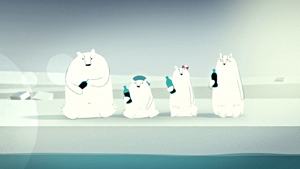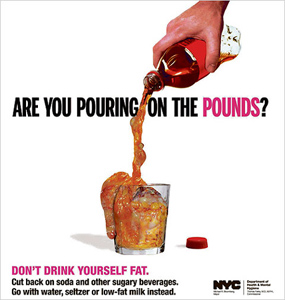Center for Communications, Health and the Environment

How
Sweet It Isn't:
High Sugar Intake Threatens Human Health Worldwide
|
It's sweet. It's ubiquitous. And it is one of the single biggest threats to public health worldwide.
Sugar has been around since ancient times, but its rockstar status is of modern-day making, a result of the confluence of mass production, consumer appetite and corporate profits.
Presently, sugar is a popular, if not important, part of the human diet, found in everything from candy, cookies and cake to pasta sauce, salad dressing and bread. It appears on ingredients lists as its five-letter self, as well as in other forms such as high-fructose corn syrup, evaporated cane juice, dextrose, fructose, maltodextrin, and about 30 other less recognizable monikers, depending on its source and how it was made.
While sugar and its derivatives may make food more palatable and provide energy, consumption of sugar in any form is the proverbial double-edged sword on a slippery slope, a "liquid candy" linked to numerous and reverberating health issues.
Soda Wars:
Advocacy Group Shines Harsh Spotlight on Sugary Drinks
 |
Taking on Big Soda is no small matter. Maybe that's why the Center for Science in the Public Interest (CSPI) decided to aim high and hit the industry where it hurts, using the world's best-known soda maker's own promotional materials against it in a recent sugary beverage blitz.
Escalating its long-standing campaign to reduce the consumption of soda and other sugared drinks, the D.C.-based advocacy group released an animated short film satirizing The Coca-Cola Company's use of happiness and computer-generated polar bears to sell soda - exposing the drinks' unhappy health consequences in the process. Premiering in October 2012, CSPI's "The Real Bears" features a family of soda-guzzling polar bears that becomes progressively disease-ridden due to its beverage habit before pouring its "pop" into the sea, and reclaiming health and happiness. The video went viral, spreading rapidly on Facebook and Twitter after USA Today called it "the video that Coca-Cola does not want you to see."

Dr. Sushma Palmer, Program Director
Valeska Stupak, Editorial & Design Consultant
Shiraz Mahyera, Systems Manager
Rohit Tote, Website Consultant
